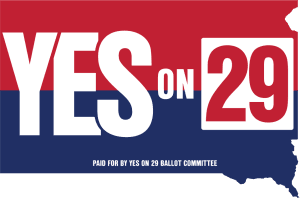OPINION — The federal government has regulated (or been trying to regulate) cannabis (marijuana) use since at least 1914 with the Harrison Act. Surprisingly California was the first state to make it illegal in 1915. There have been numerous changes in the law since, including the Controlled Substances Act of 1970, which categorized marijuana as a Schedule 1 substance. Schedule 1 drugs supposedly have no medical use and are among the drugs most likely to be misused.
President Richard Nixon’s commission to review marijuana laws recommended that pot be decriminalized. Nixon declined. Numerous states have since legalized the medical use of pot, including South Dakota. Twenty-six states, Guam and the District of Columbia have legalized recreational use. You read that right. Your Congressman can show up for work toasted on legally-purchased pot.
According to history.com, the history of the War on Drugs suggests some ulterior political motives, particularly from the Nixon administration. In 1994, Harper’s journalist Dan Baum interviewed Nixon’s domestic policy chief John Ehrlichman. He identified two Nixon campaign enemies as “the antiwar (Vietnam) left and black people.” He explained: “We knew we couldn’t make it illegal to be either against the war or black, but by getting the public to associate the hippies with marijuana and blacks with heroin, and then criminalizing both heavily, we could disrupt those communities. Did we know we were lying about the drugs? Of course we did.”
Other sources, including Ehrlichman’s family, say that quote is bogus. Those of us who lived during the time knew Ehrlichman to be a liar and loyal to Nixon up until Nixon refused to pardon him for his part in the Watergate scandal.
Initiated Measure 29 on the upcoming South Dakota ballot, seeks to legalize the recreational use, possession and distribution of marijuana.
Back in 1991, William F. Buckley, Jr., founder of National Review, and long-considered the founder of modern conservative thought, declared along with National Review’s editorial board, that “The War on Drugs Is Lost.” The magazine reprinted the editorial in July, 2014. I have in the past referred to the editorial in the space The Black Hills Pioneer provides me here.
From the editorial: “Things being as they are, and people as they are, there is no way to prevent somebody, somewhere, from concluding that “National Review favors drugs.” We don’t; we deplore their use; we urge the stiffest feasible sentences against anyone convicted of selling a drug to a minor. But that said, it is our judgment that the war on drugs has failed, that it is diverting intelligent energy away from how to deal with the problem of addiction, that it is wasting our resources, and that it is encouraging civil, judicial, and penal procedures associated with police states. We all agree on movement toward legalization, even though we may differ on just how far.”
In the March 1991 episode of his PBS political show “Firing Line,” Buckley said: “The politics of conservatism begins with the recognition of reality.” From the same episode: “It’s time to say let’s grow up. Let’s do what we can to assist those who are afflicted, short of sending them to jail.”
In many cases, right here in South Dakota, our friends and neighbors – members of our churches, the folks with whom we interact daily, nice folks – are currently using marijuana and are, therefore, criminals. Does the nicest member of your coffee klatch belong in the hoosegow? The war to prevent folks from using marijuana, is, as one of the most conservative people in U.S. history agreed, lost.
South Dakota needs to stop making criminals of productive members of our society. Voting for IM29 is only a first step in changing this crooked course. The governor and our legislature will still have plenty to clarify, which will take time and debate. And they’ll drag out that debate as long as voters allow.
The state’s Attorney General’s IM29 explanation says “judicial and legislative clarification may be necessary. You think? In his explanation he states: “Counties could see incarceration expenses reduced by $581,556 every year.” It also says the state and municipalities would collect minimal additional sales tax revenue, as the measure would not decriminalize the sale of cannabis but would decriminalize the sale of cannabis accessories.”
Cheech and Chong aren’t moving to your neighborhood if IM29 passes. Buckley said it best decades ago: “Let’s grow up.”
